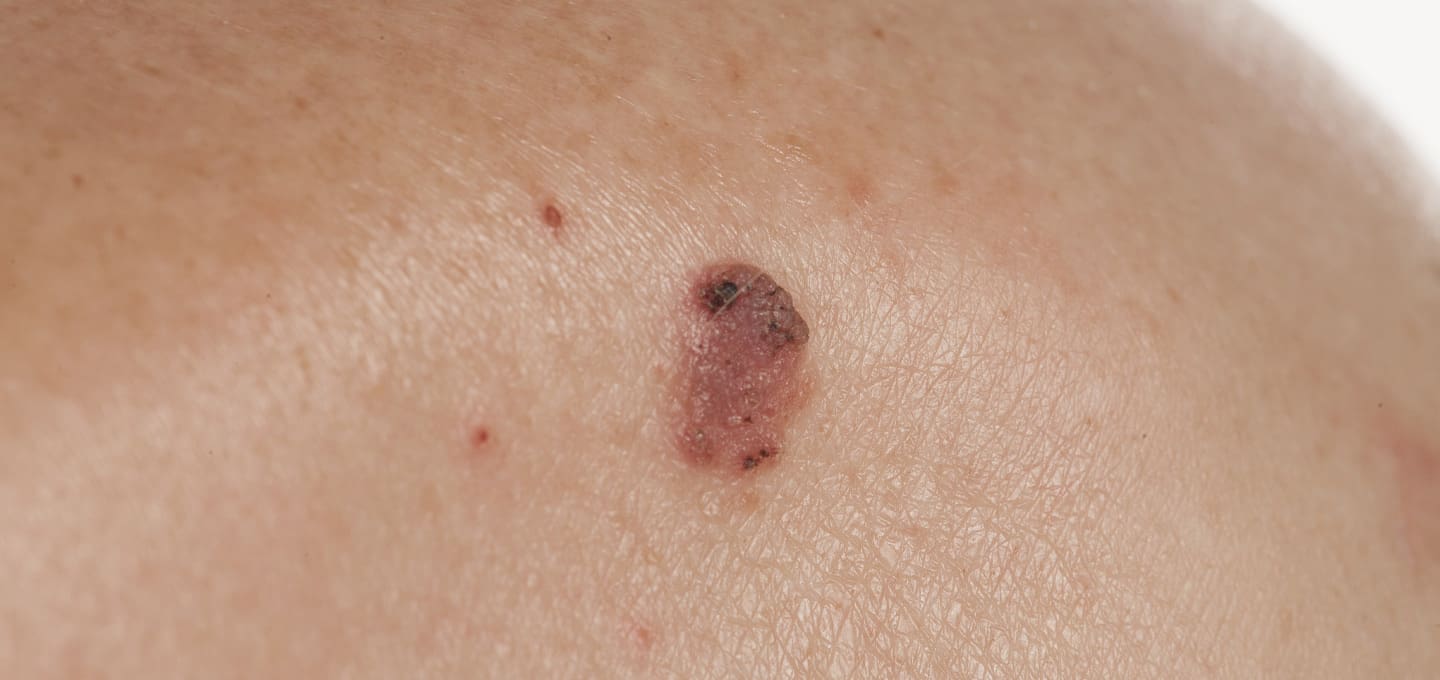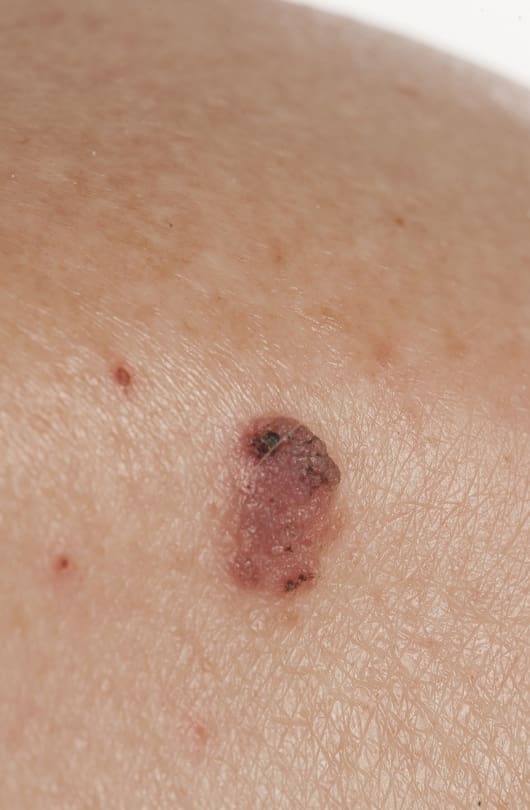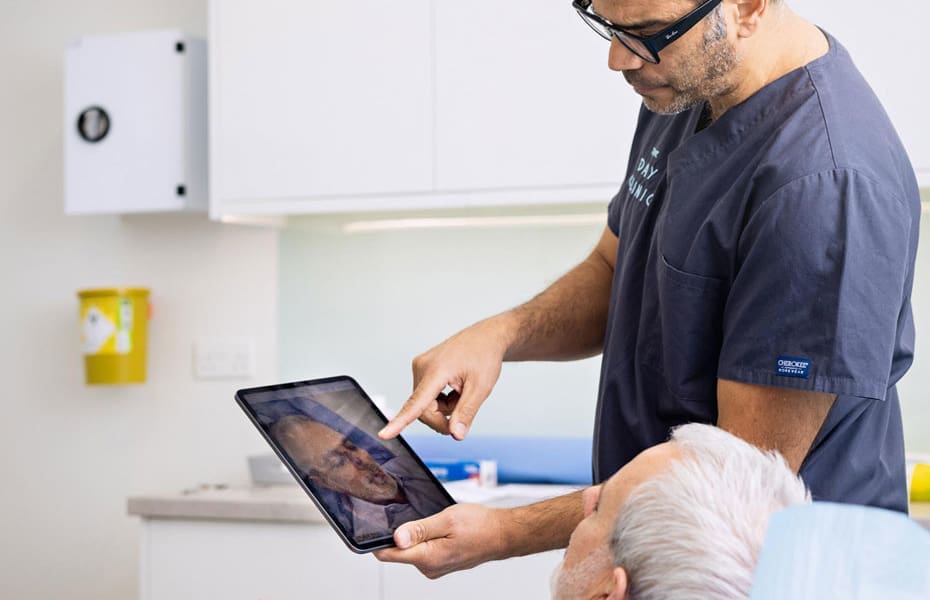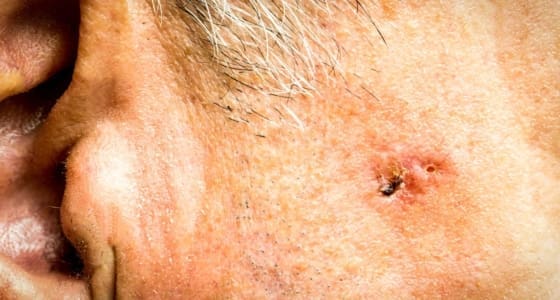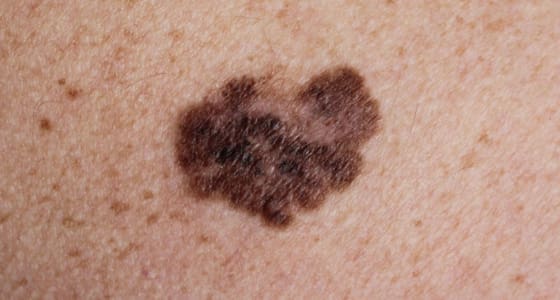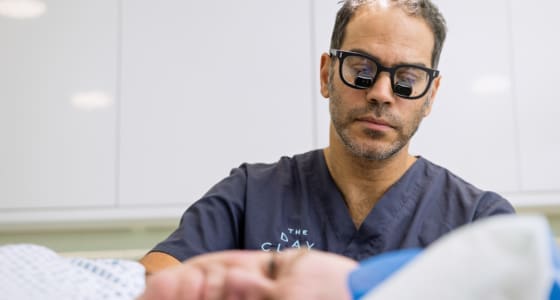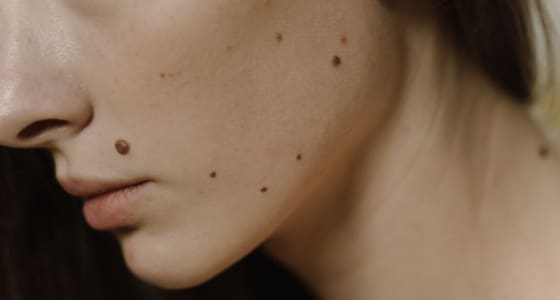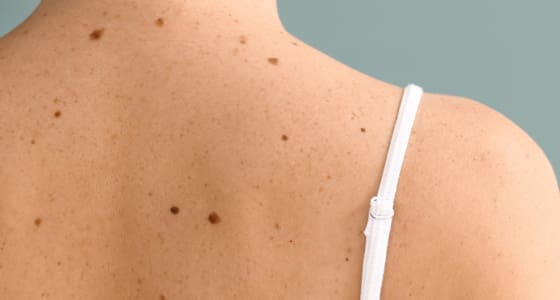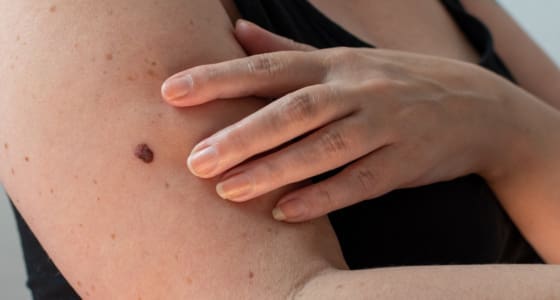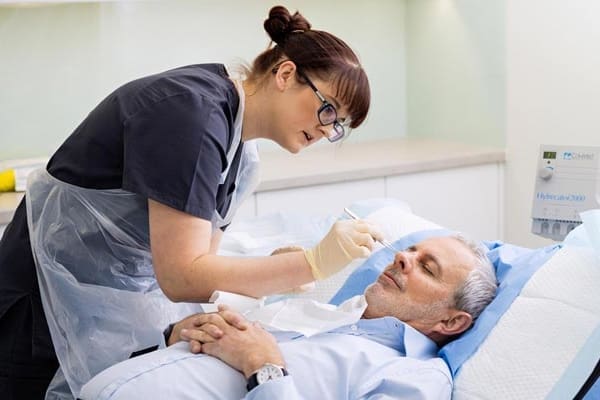SCC is the second most common type of skin cancer in the UK after basal cell carcinoma (BCC). SCC is a non-melanoma skin cancer which means it is usually a less dangerous and aggressive form of skin cancer.
SCC arises from the squamous cells which are found on the surface of the skin. It normally appears on parts of the body exposed to the sun, including the face, neck, ears, backs of hands and arms. Fair skinned people who have been exposed to ultraviolet light from the sun or tanning beds for long periods of time are most at risk. UV light can cause changes to DNA which prompts squamous cells to grow out of control. People who are immunosuppressed can also be more susceptible to developing it.
SCCs may grow slowly over time or develop rapidly. The treatment for squamous cell carcinoma can depend upon various factors including the size, location and stage of the cancer as well as your overall health. In most cases we remove SCCs through surgical excision for skin cancer but there are various other treatment methods available. If the lesion is pre-cancerous and in the early stages of becoming an SCC it may be suitable for treatment with cryotherapy, or using creams or gels containing medications like imiquimod or 5-fluorouracil. In some cases, a combination of treatments may be recommended.
The vast majority of SCCs are low risk skin cancers and can be cured. However, a small number can recur, and/or invade deep into the skin layers, and/or spread (metastasise) to the lymph nodes or to other parts of the body. If this is the case, you may need additional treatments such as radiotherapy, chemotherapy and/or immunotherapy. These treatments will be overseen by a multi-disciplinary team, including your treating consultant at The Day Clinic, ensuring that you get the best and most appropriate care.
